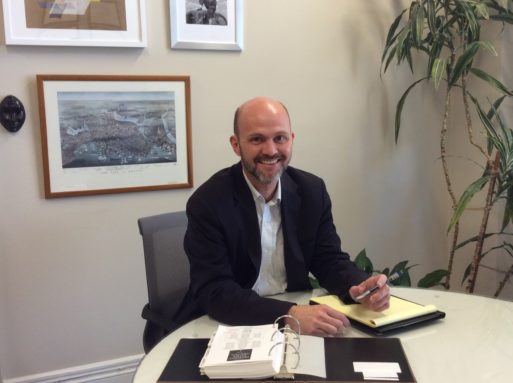Today SevenPonds continues its conversation with Joseph Ferrucci, Attorney at Law P.C., whose San Francisco law office provides a full range of legal services relating to estate planning, estate administration, conservatorship and special needs, and real property.
Editor’s Note: This interview has been edited for length and readability. In addition, the conversation contains general information about legal topics. It is not, and is not intended to be personal legal advice, as every case is unique. If you have questions about your particular case, consult with a licensed, qualified attorney who knows your state laws.

Joseph Ferrucci
Laura B. Hayden: Welcome back Joe. Last week you talked about the importance of having a Will, a General Durable Power of Attorney and an Advance Health Care Directive in an estate plan. You also said that sometimes a Revocable Living Trust is beneficial. Can you elaborate on that?
Joseph Ferrucci: A Revocable Living Trust is a tool for avoiding probate, which is a court process. I often tell my clients to imagine they place all of their assets a box. That container is the trust. It’s “living” because you establish it during life.
Laura: How is that different than a Will?
Joseph: A Will comes into play only after you die, but a living trust can actually start benefiting you while you are still alive. During your lifetime, you serve as your own trustee, and you can use the trust assets for any purpose. Also, it is “revocable” because you have the power to revoke or amend it. Upon your death, a successor trustee whom you pick would then distribute the trust assets to your named beneficiaries, without the need for probate and usually with less cost and delay.
To give you an example, I had a client several years ago who has since passed. He had done very well in business, owned a home and three rental properties and had other savings. His Revocable Living Trust gave him control of his assets in life and saved his family the time and cost of going through probate after he died.
Laura: What do you say to people who may think estate plans are only for the wealthy?
Joseph: People who are wealthy may need more complex estate plans to avoid or reduce the estate tax and the generation skipping transfer (GST) tax. But very few estates are subject to the estate and GST taxes. The primary purpose of an estate plan is to identify the beneficiaries of estate assets and to name trustees, executors, financial agents and health care agents. Everyone needs an estate plan for this primary purpose.
Laura: Online companies like LegalZoom offer customers the opportunity to create the estate plan documents we’ve discussed. Is there a “caveat emptor” connected to this do-it-yourself process our readers need to know?
Joseph: LegalZoom and other do-it-yourself legal document companies are not lawyers and can’t give legal advice. The documents are one-size-fits-all. There are limits on how much you can tailor them to your unique circumstances. You also lose out on the advice, opinions and strategies you can get from a lawyer.
Laura: What might the consequences of that be?
Joseph: One example would be if a client has kids who don’t get along, how can the estate plan be set up to avoid a fight? That’s where a lawyer’s advice is critical.
If it is too expensive to hire a lawyer, some states offer free document templates. The State of California has a fill-in-the-blank “statutory” will, available for free online, that can work well for California residents who have relatively uncomplicated estates.
Wills are based on state law, and while there are some similarities from state to state, each state’s laws are different. The DIY documents are not always in sync with the laws in every state. I would suggest that anyone who uses a DIY legal form service arrange a consultation with a lawyer in their state to be sure the documents meet their individual needs and will work under the laws of that state.
Laura: All this has been extremely helpful. I’m sure many of our readers will start taking steps to create their own estate plans now that you’ve explained the documents and process so well. Thank for sharing your time and expertise with SevenPonds.
If you missed Part One of our interview with Joseph Ferrucci, catch up here.

 What Does an Estate Plan Cover and How Do You Make One?
What Does an Estate Plan Cover and How Do You Make One?


 Our Annual Seven Holiday Gifts for Someone Who Is Grieving, 2024 Edition
Our Annual Seven Holiday Gifts for Someone Who Is Grieving, 2024 Edition
 “Making Mobiles” by Karolina Merska
“Making Mobiles” by Karolina Merska
 “Hands Up to the Sky” by Michael Franti & Spearhead
“Hands Up to the Sky” by Michael Franti & Spearhead














